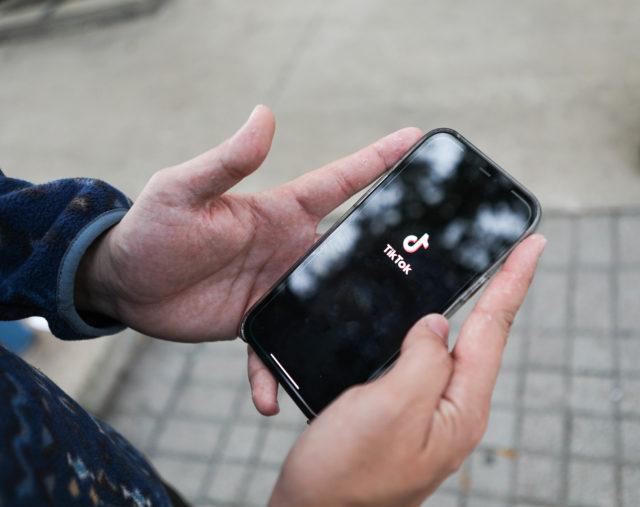By Kassidy Tsikitas | Staff Writer
The banning of the popular social media platform, TikTok, has taken effect in multiple public schools in Texas including the University of Texas in Austin, the University of Houston and Texas A&M University. The ban prohibits anyone from using the platform on school services due to their federal funding.
Gov. Greg Abbott mandated that agencies in Texas should ban TikTok on all government devices. According to Abbott, there is fear the Chinese Communist Party may have full access to the information stored within the US through the platform.
The University of Houston banned TikTok in early December from all school services. Many more public universities in Texas are following this statewide ban.
“’On Dec. 7, 2022, citing cybersecurity threats by China, Texas Governor Greg Abbott ordered all Texas state agencies, which includes the UHS and its universities, to ‘ban its officers and employees from downloading or using TikTok on any of its government-issued devices,'” an email sent by the University of Houston said.
TikTok is a widely used social media app used by people around the world to make videos in a short time frame. Concerns about the Chinese government running the platform have risen over the past few years. Now, state governments are acting on this problem.
A press release from the Office of the Texas Governor addressed why Abbott decided to act on this ban.
“The Governor highlighted the State of Texas’ responsibility to preserve the safety and cybersecurity of Texans, in addition to the federal government’s responsibility for foreign policy issues,” the press release said.
Former President Donald Trump tried to ban the app in 2020 to protect the country predicting it to be a national threat. On Dec. 23, 2022, the United States Congress passed a bill that allows TikTok to be banned on federal devices.
“Each state agency will then have until Feb.15, 2023, to implement its own policy governing the use of TikTok on personal devices,” the press release also said.
University of Texas in Austin junior Carolyn Parmer said she looks at this more politically than others.
Parmer works at the Moody Support Writing Center and runs the TikTok account for the department. She said after the ban initially happened, a meeting took place where the writing center staff discussed the TikTok account ceasing activity.
“I think it will have more of an impact on the future, but Instagram reels are a thing and that’s like TikTok,” Parmer said.
With TikTok not being an option for public school accounts anymore, there are other social media platforms that are available. Social organizations like sororities and fraternities can use their Instagrams to share information on their events.
“Communication will not decrease, other social medias will be used to complain,” Parmer said.
Dan Phillips, former special agent, said the effects of having TikTok are available for use on the school Wi-Fi and devices.
“It not only collects all of your data, but it can also plants tracking software into the school system anytime you use the school Wi-Fi,” Phillips said.
He also said this is known as the Trojan Horse virus, which is a way to access your information without your knowledge. Phillips said he recalls a time when the Office of Personnel Management was hacked, and everything was stolen from the employees.
“The government had to give us free identity software for two years because people were getting their bank accounts hacked,” Phillips said.
Phillips also said he thinks most public and private universities will eventually ban TikTok on their networks.
“If you’re a Baylor student and are connected to the school Wi-Fi using TikTok, it is not only gathering all your information, but it also plants a tracking software into the school system,” Phillips said.
Baylor sophomore Elizabeth Charkalis, co-runner of the “BeABaylorBear” account said the account helps to encourage people to join the Baylor family, along with sharing experiences of the community.
“If Baylor were to ban TikTok, I think the community would have a hard time reaching out to one another,” Charkalis said.
With TikTok’s algorithm, Baylor students can stay informed about certain activities like Homecoming or All-University Sing. Charkalis said aside from allowing the community have a stronger communication, the platform also allows for them to promote smaller businesses in Waco.
“I don’t think we are too worried about Baylor banning TikTok, if it were to happen it could probably effect how many people see the Baylor community,” Charkalis said. “College aged students tend to use this platform more than others.”
Baylor Spokesperson Lori Fogleman said Baylor is continuing to monitor the situation involving TikTok.
“We are certainly aware of the prevalence of TikTok use among our current and prospective student populations,” Fogleman said. “As we continue to monitor this, it’s important to note that any decision would be one not taken lightly.”



